 IBCLC Detailed Content Outline: Clinical Skills Focused CERPs - Section VII
IBCLC Detailed Content Outline: Clinical Skills Focused CERPs - Section VII
Access CERPs on Clinical Skills for the IBCLC Detailed Content Outline recertification requirements. Enjoy convenient on-demand viewing of the latest Clinical Skills focused IBCLC CERPs at your own pace.


Tom Johnston is unique as a midwife and lactation consultant and the father of eight breastfed children. Recently retired after 27 years in the US Army, he is now an Assistant Professor of Nursing at Methodist University where he teaches, among other things, Maternal-Child Nursing and Nutrition. You may have heard him at a number of conferences at the national level, to include the Association of Woman’s Health and Neonatal Nurses (AWHONN), the International Lactation Consultant’s Association (ILCA), or perhaps at dozens of other conferences across the country. In his written work he routinely addresses fatherhood and the role of the father in the breastfeeding relationship and has authored a chapter on the role of the father in breastfeeding for “Breastfeeding in Combat Boots: A survival guide to breastfeeding in the military”.
Topic: Human Milk Synthesis: Just When You Thought You Knew - [View Abstract]
Topic: New Insights Into the Maternal Child Microbiome - [View Abstract]
Topic: Promoting Provider Self-Efficacy in Breastfeeding Support - [View Abstract]
Topic: Still Swimming Upstream: Breastfeeding in a Formula Feeding World - [View Abstract]
Topic: The Making of Human Milk: A Clinical Update - [View Abstract]
Topic: The Maternal-Child Microbiome or: The “Oro-boobular axis” - [View Abstract]
Topic: The Maternal-Child Microbiome or: The “Oro-boobular axis” - [View Abstract]
Topic: The Perinatal Microbiome - [View Abstract]
Topic: Using Evidence to Develop Clinical Lactation Skills - [View Abstract]
The field of Human Lactation is a new profession. Much of what we use comes from apprenticeship programs and hard learned lessons from a mother’s own personal experience. The lactation profession needs to investigate several of their practices and policies to discover what is evidence based and what is anecdotal evidence. This presentation explores the practices commonly employed in breastfeeding (growth monitoring, infant positioning, the use of assisted feeding devices, and counseling skills) to determine which are evidence based and which will require further study if they are to be used in clinical practice.

View Details / Enroll

Using Gravity-Assisted Positions to Prevent Early Breastfeeding Problems

Nancy Mohrbacher was born and raised in the Chicago area, where she lives today. She is a board-certified lactation consultant who has been helping nursing mothers since 1982. Her breastfeeding books for parents and professionals include Breastfeeding Answers Made Simple and its Pocket Guide; Breastfeeding Made Simple(with Kathleen Kendall-Tackett); Working and Breastfeeding Made Simple; and Breastfeeding Solutions and its companion app for Android and iPhone.
Nancy currently contracts with hospitals to improve breastfeeding practices, writes for many publications, and speaks at events around the world. Nancy was in the first group of 16 to be honored for her lifetime contributions to breastfeeding with the designation FILCA, Fellow of the International Lactation Consultant Association.
Topic: Applying Bioethics to Milk Banking and Milk Sharing - [View Abstract]
Topic: Concerns About Low Milk Production - [View Abstract]
Topic: Transitioning the Preterm Infant to the Breast - [View Abstract]
Topic: Using Gravity-Assisted Positions to Prevent Early Breastfeeding Problems - [View Abstract]
Topic: What Mothers Need to Exclusively Breastfeed - [View Abstract]
Topic: What's New In Lactation - [View Abstract]
View Details / Enroll
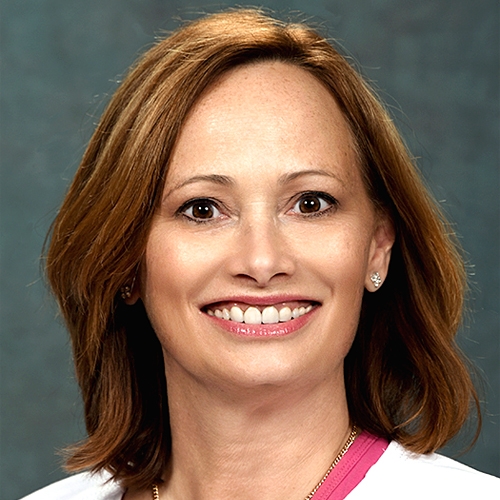
Using Your Voice to Drive Change – How Formal and Informal Nurse Leaders Make a Difference in The NICU

Pamela Spivey is an Advanced Practice Registered Nurse and founder of Spivey Consulting, LLC. She shares her 34 years of expertise in neonatal nursing and leadership development as a national speaker, author and certified leadership coach. Pam launched her own business in 2015 to support individual clients and corporate teams through professional coaching, leadership development, and consultative services. Her unique experiences and passion for caring, drives her to “help nurses away from the wall and toward their possibilities”.
Innovation and change is a constant in healthcare. Nurses are key stakeholders in developing, implementing and executing these changes. Whether the nurse is a formal or informal leader, their presence is vital for effective change. A nurse’s voice, your voice, can drive change by leading, guiding and engaging colleagues in the process. Extraordinary outcomes can be achieved with a clearly articulated vision, an inspired team, knowledge about the change (the why behind the what), and the resources necessary to create change. This presentation focuses on how leaders can prepare for change, move forward using change management strategies and sustain meaningful change in their units. Individual and collective strengths required to lead change will be shared.

View Details / Enroll

Vestibular Processing: Using the Sixth Sense to Support Lactation and Parent/Infant Relationships

Gretchen Becker Crabb is an Occupational Therapist, Licensed Professional Counselor, and Endorsed Infant Mental Health Therapist. She is also a Certified Lactation Counselor, La Leche League Leader, and Brazleton Newborn Observation (NBO) trainer.
Gretchen’s passion is rooted in fostering lifelong relationships and connection through co-regulation in pregnancy and beyond. Her unique approach to lactation support and therapy is rooted in culturally attuned sensory, somatic, and trauma-informed mental health techniques.
Gretchen owns and operates a private practice in Madison, Wisconsin. For 21 years, she has provided developmental, trauma, feeding, and attachment support for tiny humans and their caregivers in birth to three, preschool, private practice, and peer group settings. Gretchen is an international speaker, reflective supervisor, and infant mental health consultant. In these roles, she offers compassionate, experiential, and reflective holding spaces for professionals. She is a proud United States Air Force spouse and mother of three boys.
Topic: Infant Mental Health: What Does It Look Like in Practice? - [View Abstract]
Topic: Scent-Sational Connections: The Role of Olfaction in Development - [View Abstract]
Topic: Sensory Processing and Breast/Bodyfeeding: Using Co-Regulation to Support the Feeding Relationship - [View Abstract]
Topic: Vestibular Processing: Using the Sixth Sense to Support Lactation and Parent/Infant Relationships - [View Abstract]
The body’s ability to process sensory information provides the basis of all function. Interestingly, our most foundational sense of movement is often overlooked as a component of lactation support. In this presentation, we will tie together research in neurology, primitive reflexes, mental health, and sensory integration to demonstrate the significant impact vestibular function has on the quality of lactation and infant/caregiver relationships. Participants will enhance their observational skills and explore ways to provide support for body/breastfeeding dyads using a vestibular processing perspective. Experiential activities will offer participants the opportunity to play with movement and reflect on personal experiences to enhance self-awareness and compassionate care.

View Details / Enroll
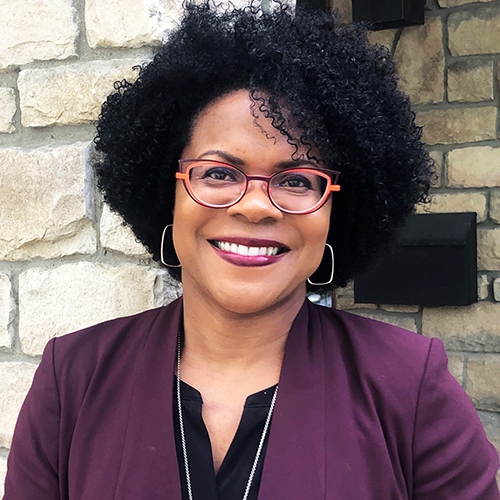
Walking with NICU Families Through Their Infant Feeding Journey

Maxine graduated with a nursing degree followed later on by her Master of Nursing in 2017 both from the University of Calgary. Maxine was a public health nurse in Calgary for 13 years, where providing face to face contacts with new families soon after discharge is a standard of care. Most families named feeding challenges as their biggest concern. In turn, Maxine developed a passion for lactation support, worked towards and attained the International Board-Certified Lactation Consultant designation, in order to assist families to reach their feeding goals.
In 2016, Maxine made the transition from public health to acute care where she currently works in all areas of a large Children’s hospital to support dyads with a myriad of lactation concerns but is primarily in the NICU. Maxine’s responsibilities includes orienting new staff to teaching a provincial lactation education within a team. Maxine is passionate about sharing knowledge with aspiring LCs and is a mentor to many. Maxine participates on numerous committees to update lactation and feeding policies, procedures and documents. Furthermore, she volunteers on provincial and national breastfeeding committees.
To graduate from the Neonatal Intensive Care Unit (NICU) infants are required to be adequate feeders. Feeding is a learned skill for NICU babies that is expected to “be there in waiting” after a long medical and or surgical admission. Effective feeding and subsequent weight gain in the NICU are the measures and skill to which a discharge ticket home is granted. Feeding can sometimes be overlooked in regards to its role in infant well being and parental confidence. Infants are admitted to surgical level 3 NICUs for many reasons, including prematurity, necrotising enterocolitis, intestinal perforations, gastroschisis, duodenal atresia, omphaloceles, therapeutic hypothermia, seizures, and oesophageal atresia /fistulas including genetic or metabolic abnormalities. Many of these illnesses have a very long course toward healing and recovery before oral feeding is introduced.
Lactation Consultants in the NICU are well positioned to ensure support of the family and medical team along the way, to optimize successful oral feeding upon discharge home.
This talk will look at some of the ways that parental presence and mom’s milk is therapeutic in the NICU, and how the progression of breastfeeding can be the ticket to going home.

View Details / Enroll
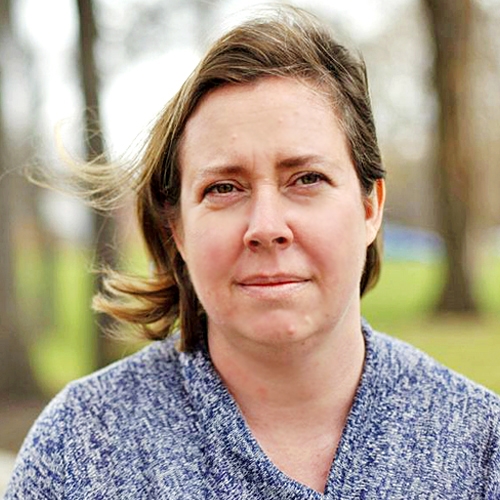
Watching Our Words: Is Risk-Based Language Always the Right Choice?

Michelle Pensa Branco MPH IBCLC is a lactation consultant and public health advocate. In addition to her clinical practice, which has included in-hospital, outpatient and private practice settings, she advocates for improved maternal-child health practices at the local, national and global level. She has a particular interest in the impact of trauma to breastfeeding families, models of peer support to improve breastfeeding outcomes and the application of health communication principles to the promotion and protection of breastfeeding. Michelle serves as the Director of Peer Support Programs and provides clinical lactation expertise for Nurture Project International, the only international NGO focused exclusively on infant feeding in emergencies. With Jodine Chase, she co-founded a Canadian non-profit organization, SafelyFed Canada. She is also an active member of the Ontario Public Health Association’s Breastfeeding Promotion Working Group. Michelle has previously served as the Vice-Chair of La Leche League Canada, the Communications Director for the Canadian Lactation Consultants Association as well as the Toronto Coordinator of INFACT Canada. When she is not travelling for work, Michelle stays close to home, living with her family just outside Toronto, Ontario, Canada.
Topic: Keeping the Fox Out of the Chicken Coop: Safeguarding Your Reputation Against Baby Feeding Industry Influence - [View Abstract]
Topic: Playing Well with Others: Collaborating in High Conflict/Low Trust Settings - [View Abstract]
Topic: Watching Our Words: Is Risk-Based Language Always the Right Choice? - [View Abstract]
Within the lactation world, it is widely accepted that optimizing infant feeding practices and normalize breastfeeding, we must frame breastfeeding as the physiological norm and not breastfeeding as the risk behaviour. For example, breastfeeding does not reduce the risk of type II diabetes, but rather not breastfeeding increases the risk of type II diabetes. Most of us have had this framing drilled into us during our training and can deftly turn around any headline to reflect the correct wording.
It is, indeed, scientifically correct that breastfeeding is the physiological norm for human: artificial feeding is no more “normal” for the human baby than using a wheelchair to be mobile. However, health communication is about more than delivering scientifically accurate facts to the target population. In motivating parents to initiate breastfeeding and then maintain exclusive breastfeeding for 6 months and alongside complementary foods for at least 2 years and beyond, the science of health behaviour is often overlooked.
In this session, we will discuss some of the major models of health behaviour change and how risk is perceived and acted up on within these models, drawing from both maternal-child health and other public health. We will review the rationale for using risk-based language as well as the evidence for different perspectives, including the use of social marketing strategies.
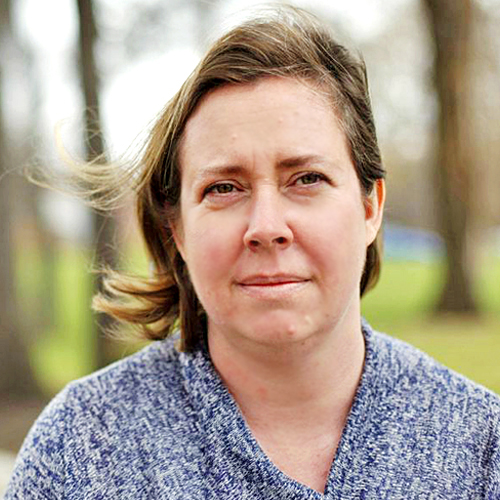
View Details / Enroll

Weaning: Supporting Families Stopping Lactation and/or Ending Their Breastfeeding/Chestfeeding Relationship

Joy MacTavish, MA, IBCLC, RLC is an International Board Certified Lactation Consultant and certified Holistic Sleep Coach focusing on the intersections of infant feeding, sleep, and family well-being. Through her business, Sound Beginnings, she provides compassionate and evidence-based support to families in the greater Seattle area, and virtually everywhere else. She entered the perinatal field in 2007 as birth and postpartum doula, and childbirth and parenting educator. Joy holds a Master of Arts in Cultural Studies, graduate certificate in Gender, Women and Sexuality Studies, and two Bachelors degrees from the University of Washington. She enjoys combining her academic background, analytical skills, and passion for social justice into her personal and professional endeavors. Joy serves as an Advisory Committee Member and guest speaker for the GOLD Lactation Academy. When not working or learning, she can be found homeschooling, building LEGO with her children, or dreaming up her next big adventure.
Topic: Full-Term Breastfeeding/Chestfeeding: Benefits, Considerations, and Ways to Offer Support - [View Abstract]
Topic: Mindful Breastfeeding: How Lactation Professionals Can Support Calm and Connection - [View Abstract]
Topic: Sending Reports: What’s in it for IBCLCs? - [View Abstract]
Topic: Supporting Clients Facing Fertility Treatment - [View Abstract]
Topic: The Intersection Between Lactation, Sleep, and Family Well-Being - [View Abstract]
Topic: Weaning: Supporting Families Stopping Lactation and/or Ending Their Breastfeeding/Chestfeeding Relationship - [View Abstract]
While lactation support spans the time from the prenatal period through weaning, there is less available information about the process of weaning. We know that there are a variety of reasons why families need or desire to stop lactation. We also know that there are emotions and logistics involved in ending a breastfeeding/chestfeeding relationship. Depending on the goals, timeline, and individual context of each dyad there are a variety of factors that need to be considered by the family. Unfortunately, these families often feel that the clinical information and emotional support available for weaning is lacking.
Evidence-based support presented in a compassionate manner can make a world of difference to the individual's decision-making process and overall weaning experience. For lactation supporters and professionals, being able to support families who are stopping lactation and/or ending their breastfeeding/chestfeeding relationship is a vital skill. This presentation will offer research-based information about the reasons for weaning, steps lactation supporters and professionals can take when working with families, and scripts for compassionate phrasing while offering this important information and support.

View Details / Enroll

View Details / Enroll

We’re Human, Too: Hidden Dynamics in Our Communication with Clients

Cynthia Good, MS Clinical Psychology, is an International Board Certified Lactation Consultant, Clinical Counselor, author, consultant, and internationally recognized speaker. She is the Director of LifeCircle Consulting, LLC and is Certified in Acute Traumatic Stress Management. She is based in the Seattle, Washington, USA area, where she formerly served as an Adjunct Professor in the Department of Midwifery at Bastyr University where she taught counseling skills and is a therapist at Sandbox Therapy Group where she works with children, adults, and families. Cynthia has a strong interest in the emerging field of lactational psychology. She brings the evidence and insights of psychology and lactation consulting to her presentations, providing information and teaching skills that are essential to understanding and effectively responding to the complex psychosocial realities of families living in diverse contexts. The focus of her presentations includes communication skills and counseling techniques for perinatal care providers; equity, diversity, and inclusion; infant feeding rhetoric; perinatal mental health; perinatal loss, grief, and trauma; ethics; serving as an expert witness in lactation-related court cases; cultural competence and humility; vitamin D; and more.
Topic: Cultural Competence or Cultural Humility? A Roadmap for Lactation Specialists - [View Abstract]
Topic: Heartbroken: Loss and Grief in the Perinatal Time Period - [View Abstract]
Topic: It Wasn’t Supposed to be Like This: Traumatic Birth, Traumatic Stress, and Breastfeeding - [View Abstract]
Topic: My Brain is Doing What? Bias, Ethics, and the Lactation Specialist - [View Abstract]
Topic: Perinatal Mental Health Screening: A Primer for Lactation Specialists - [View Abstract]
Topic: The IBCLC as Expert Witness: Role, Strategies, and Resources - [View Abstract]
Topic: The Rug Pulled Out from Underneath Me: Depression During Pregnancy and After Birth - [View Abstract]
Topic: Unpacking the Invisible Diaper Bag of White Privilege: An Overview of Racial Inequities in Breastfeeding Support - [View Abstract]
Topic: We’re Human, Too: Hidden Dynamics in Our Communication with Clients - [View Abstract]
On the best of days, providing quality lactation care to families in the perinatal time period is a challenging endeavor. IBCLCs, for example, are mandated to effectively utilize history taking and assessment skills, a broad collection of skills to assist the dyad, general problem-solving skills, skills related to techniques and devices, and skills needed to develop, implement and evaluate an individualized feeding plan in consultation with the client. Communication skills are the bedrock of everything a lactation supporter must do. Our training in this area logically tends to focus on understanding and responding to the human context of the dyad. However, there are two sides to communication in a lactation-related encounter: the client and the care provider. And, care providers are also human. In spite of our compassion and good intentions, we are impacted by the stresses, losses, and traumas of life, which can then impact our ability to work well with our clients. This presentation addresses common challenges in the lactation supporter’s own context (such as cognitive load, burnout, and traumatic triggers), their impact on communication, and strategies that can help us improve our ability to communicate effectively with our clients.

View Details / Enroll

What Is Stopping Us? Kangaroo Care Implementation in Neonatal Intensive Care Units

Sarah Coutts is a registered nurse and lactation consultant with over 10 years experience in the neonatal intensive care unit. She currently is working as a Developmental Care Specialist in a NICU in Vancouver, Canada. Previous to this position Sarah was the Kangaroo Care Coordinator of an implementation science study to improve uptake of Kangaroo Care in NICUs in British Columbia. She is part of team of clinicians and researchers interested in understanding the barriers and enablers to Kangaroo Care from both the healthcare provider and parent perspectives and creating innovative strategies to increase knowledge and practice of Kangaroo Care in the NICU. She is passionate about raising awareness of the positive outcomes of zero separation between preterm and sick infants and their parents in the NICU.
Preterm infants are at increased risk for impaired neurodevelopmental outcomes (Stoll et al, 2010). There is evidence supporting the differences in outcomes related to how we provide care to preterm infants and the effects of the environment in which the care takes place. One of the most effective ways to reduce impaired infant outcomes is inviting parents to actively participate in care activities and provide Kangaroo Care (Boundy et al., 2016; Charpak et al., 2017). Despite international recommendations, empirical evidence, and an implementation science project focused on strengthening Kangaroo Care in neonatal intensive care units in British Columbia, Canada, implementation has been slow due to various barriers to uptake (Charpak et al., 2020; Coutts et al., 2021; WHO, 2020). A ‘one size fits all’ approach cannot guide Kangaroo Care implementation as it is a complex intervention and each NICU presents unique barriers and enablers. The uptake of Kangaroo Care relies on the involvement of parents and healthcare providers and their understanding and commitment to the evolving paradigm shift in neonatal care. This transition requires environmental and social supports, systems level change of philosophies of care, and assistance for healthcare providers to recognize their changing role.
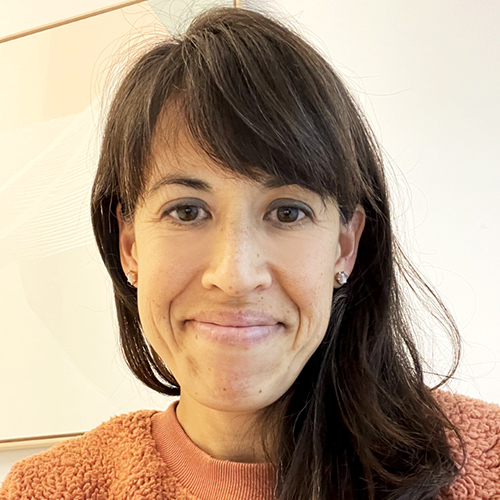
View Details / Enroll

What’s New With Ten Steps to Successful Breastfeeding: Updates and Its Cost/Benefit Implications

Andini has bachelor and master degree in public health, majoring in hospital administration. She is an IBCLC and is currently undertaking PhD at the Australian National University. Her PhD thesis is looking at the facilitator and barrier of Baby Friendly Hospital Initiative implementation and accreditation in Indonesia and Australia. One part of her PhD was measuring its social value using Social Return on Investment.
Her journey began when she was pregnant with her first child, then found and attended full series of Indonesian Breastfeeding Mothers Association (AIMI)'s breastfeeding classes. She then decided to volunteered as breastfeeding counselor at AIMI.
With her work experience in hospital management consulting for 8 years and personal experience when her breastfed son undertook open heart surgery, she realized that not every hospitals provide adequate education and support for breastfeeding mother, either since pregnancy, during and after birth.
Andini was awarded Deeble Summer Research Scholarship from Deeble Institute for Health Policy Research Scholarship Program of Australian Healthcare and Hospitals Association (AHHA) in 2020 and published a Health Policy Issues Brief titled "Improving the Uptake of the Baby Friendly Health Initiative in Australian Hospitals" as the outcome. Thanks to her supervisor, Andini involved in working group for Breastfeeding Friendly Workplace Accreditation at ANU in 2018-2019 and involve in WBTi Australia since 2019. Currently living in Canberra Australia, Andini has been providing breastfeeding education and assistance for Indonesian mother-student, students' wives or any Indonesian women who live in Canberra.
In 2018, the World Health Organization (WHO) issued the first revision of the 1989 WHO/UNICEF Ten Steps to Successful Breastfeeding. Revisions are subtle, yet meaningful for implementation. A major change made by WHO is subdividing the Ten Steps into 1) critical management procedures, and 2) key clinical practices. Lessons have been learned on how the change has shifted the focus from health care staff to parents and families and shifted the responsibility for some elements of care from hospitals to the community. In this presentation, we will compare 1989 and 2018 Ten Steps, and explore its cost and benefit implications for diverse stakeholders, such as healthcare professionals, parents, family and government.

View Details / Enroll














